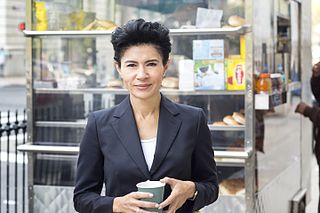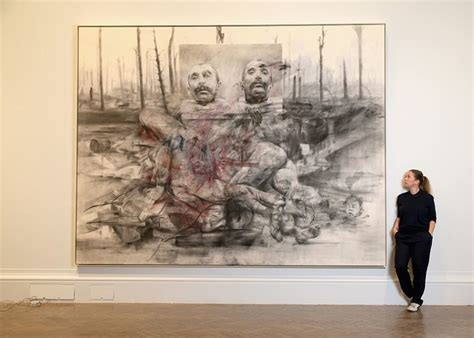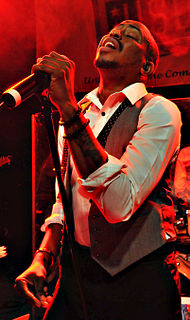A Quote by Tracee Ellis Ross
I think culturally, even if you just talk about it in context, the standard of beauty has not included women of color. Period. Not just black women. If you are not a certain thing, there has not been space for you.
Related Quotes
There are many things that black women can continue to do to help black folk. First, black women have historically been among the most vocal advocates for equality in our community. We must take full advantage of such courage by continuing to combat the sexism in our communities. Black women, whether in church, or hip-hop, don't receive their just due. Second, when black women are in charge of child-rearing, they must make ever so sure to raise black children who respect both men and women, and who root out the malevolent beliefs about women that shatter our culture.
I think empowerment of women is exactly what's happening now, with women being portrayed as human beings, and not just black and white. Men can be the anti-hero all the time, and it's cool, but when women are, they're twisted or messed up or something is wrong with them. I think it's just about portraying women in the world as equals to men, and vice versa.
My hope as an actress is knowing that I'm someone who is more privileged - I'm biracial and lighter-skinned - and I hope it can open up the door for more women of color, especially darker-skinned black women. I hope everyone hops on the bandwagon and decides to start putting women of color in movies that aren't just about race.
Katherine Johnson never complained, it just was what it was. She just said, "I just wanted to go to work and do my numbers." And she stopped right there. I think about that as a Black woman in Hollywood when I'm asked about diversity. I hate when people say diversity because the first thing you jump to is Black and white. When you talk about diversity, you're talking about women being hired in front of and behind the camera. You are talking about people with disabilities, the LGBTQ community...so I hate when people think about diversity.
Radical militant feminist believes that women of color and Black women in particular have written the cutting edge theory and really were the individuals who exploded feminist theory into the directions that has made it more powerful. So I see us as the leaders not just of Black people and Black women in terms of feminism but in terms of the movement as a whole.
There is a thing about beauty. Beauty is always associated with the male fantasy of what the female body is. I don’t think there is anything wrong with beauty. It’s just what women think is beautiful can be different. And there can be a beauty in individualism. If there is a wart or a scar, this can be beautiful, in a sense, when you paint it.
I think that the work that's left to be done - and I see the end in sight at this point - is to just let go and stop talking about it. It's definitely 'stop talking about the whole size thing.' I don't go to my girlfriend's house and say, 'Hey, I'm your big friend, let's talk about big things.' It's not a topic of conversation within my friend group - I'm ready for society, Hollywood, the press, magazines, everyone, to just catch up and say, 'These women are just like the women we've been using for so long. Let's just throw them into the mix and stop talking about it.'



































